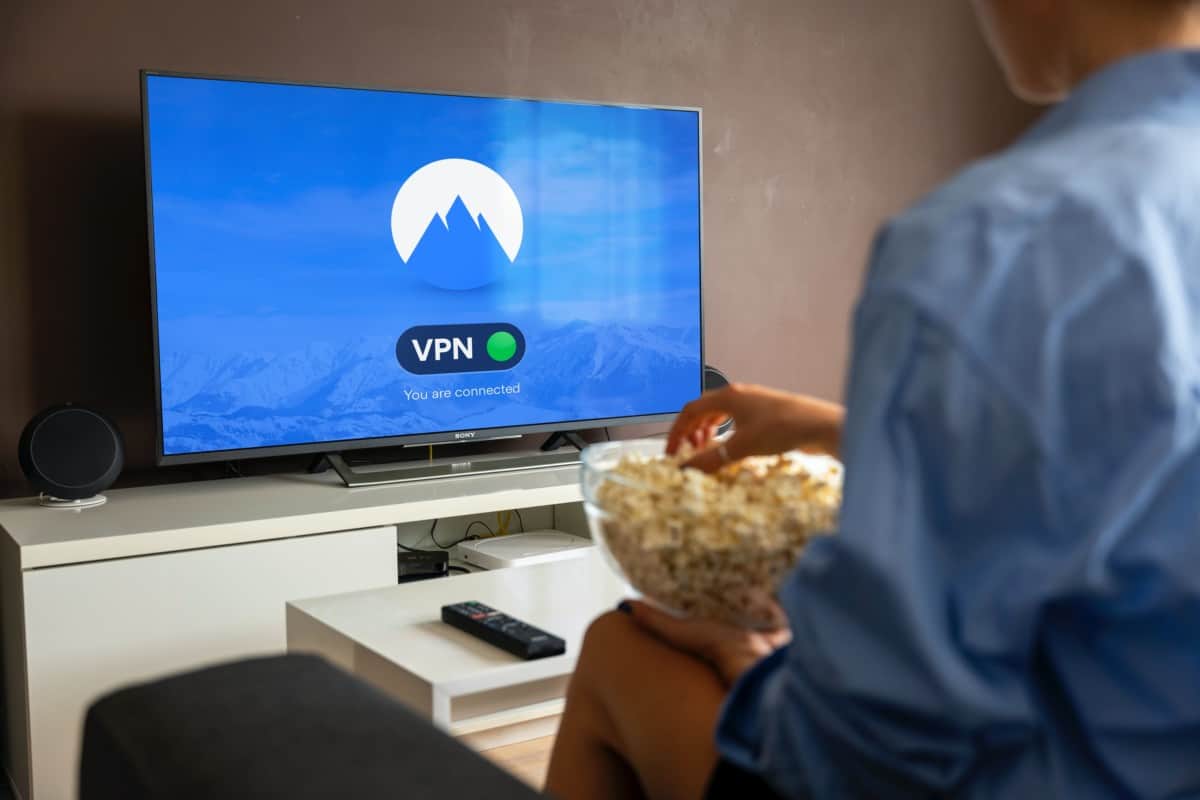Streaming content over the internet has risen in popularity. With its low cost, vast selection, and on-demand content, IPTV services have become an ideal alternative for people looking to watch their favorite shows on a budget.
But as relaxing as it may be to kick back on the sofa and watch your beloved shows after a long day at work, IPTV services can pose financial and security risks if you aren’t careful.
IPTV may be traced or tracked. Many people access IPTV through their home-based internet service or a virtual private network; however, these connections may not have strong enough security protocols in place. Not only can they reveal your activity, but pop-up ads on IPTV channels may contain malware that can expose your personal and financial information.
You may be wondering what exactly IPTV is and how you can protect yourself if you use it. Keep reading to learn more about IPTV and whether this budget-friendly streaming service is a good option for you.
What is IPTV?
Using Internet Protocol Television (IPTV), you can view content, such as movies, videos, and television programs, through the internet. IPTV is ideal for people who are on a budget. It is cheaper than purchasing satellite or cable services. IPTV is like popular platforms such as Netflix or Hulu, where you can watch movies and shows on your time.
IPTV is accessed through a device that you can buy, such as a stick or a set-top box. These devices connect to your television and convert the streamed data from your internet connection into a format that your TV recognizes. However, if you stream IPTV content through your computer or laptop, no device is needed.
IPTV services may be free or sold on a subscription basis, where you pay a monthly or annual fee for access to streamed content.
However, free IPTV services do carry risks as they may include pirated content; users who view this content can find themselves in violation of the law. Although paid IPTV channels could also consist of pirated content, so it’s helpful to choose a reputable service.
What Types of IPTV are Available?
There are a variety of IPTV formats available for access online such as:
- Video on Demand – Consumers can access movies, shows, and music on demand. This lets you watch your favorite content at a time that is convenient for you. Amazon Prime, Hulu, and Netflix are examples of the video-on-demand format.
- Live IPTV – This is commonly referred to as live broadcasting. Through Live IPTV, you can stream live content through the internet, instead of using cable or satellite TV. News shows and sporting events are examples of Live IPTV. The notable difference between Live IPTV and the other IPTV formats is that the content is streamed directly from the broadcasting source.
- Time-Shifted IPTV – This type of IPTV simulcasts live broadcasts through another source so that you can view it later. Essentially, it’s a recording of a previously aired show that is available for a limited time. You can record, rewind, and stop the program.
How Can IPTV Be Traced or Tracked?
The IPTV service or connection that you choose may bring a tracking or tracing risk. Some of the most common ways that IPTV users are vulnerable to these practices include:
Free Services
To keep costs low, consumers may use free IPTV services, or a user may choose to keep their connection private and rely on a free VPN connection to download content.
While free sounds like a great idea, it doesn’t always turn out that way. When you don’t pay for the service, the provider will find other ways to make money. Free IPTV or VPN services may acquire and sell your data without your knowledge.
Malware
Free IPTV services tend to use advertisements to recover the cost of their service. Yet, behind these pop-up ads may be malware. By clicking on these ads, you may unknowingly install this dangerous software on your computer, tablet, laptop, or other streaming devices.
Not only can your personal and financial information be compromised, but your bank account information or credit card numbers could also be stolen. Malware can also be used by hackers to track your activity. Even after you’ve logged off the site, malware is still running in the background.
Logged IP Address
Free IPTV may not always have legal content. To keep their identity hidden, users may use a VPN service to mask their location when they access IPTV. Although a VPN is expected to offer a high level of security, that is not always the case. Your IP address may be exposed as part of the server process when you connect through a VPN.
In other situations, the VPN provider may be required to track user activity depending on the laws of their country. Although a VPN is expected to provide a high level of security, your activity may not be as anonymous as you think.
Home-Based Internet Services
Your internet service provider (ISP) can also track your activity. Your ISP can keep tabs on which sites you visit and the content you download. If you access videos, shows, or movies that are not permitted by law, your ISP could block that content, close your account, and even report you to the authorities. This is because it is illegal to use IPTV services that feature pirated materials or content that violates copyright laws.
How Do I Protect Myself When Using IPTV?
There are many ways to protect yourself when using IPTV, including choosing to use a reputable IPTV service and VPN provider.
Use a Reputable IPTV Service
The best way to protect yourself against the risks of IPTV is to use, and pay for, a reputable service. Even though you are spending money on subscription services, it is typically less than what you’d pay if you used cable or satellite.
Paid IPTV services usually have security controls in place to help prevent people from hacking into your devices or tracking your activity. Plus, it can help you to avoid the personal liability of watching pirated movies and shows.
There are a variety of reputable IPTV services available, such as:
- AT&T Now – Stream live and on-demand content.
- Now TV – Now TV has a variety of passes for specific content that can be accessed through your Smart TV or through an app.
- Hulu + Live TV – Get access to over 65 channels, plus the entire Hulu content library.
Use a Reputable VPN
The rise in popularity of IPTV has caused a strain on the bandwidth of internet service providers (ISP). In some cases, ISPs may reduce their available band with or even block IPTV services. A secure VPN can improve the speed of your search, as well as unblock content.
While VPN services can keep your identity and internet searches private, your provider may track your activity if the law requires them to do so.
Some of the top reputable VPN service providers include:
- ExpressVPN – Known for its security protocols, ExpressVPN serves 94 countries through 160 server locations
- PureVPN – PureVPN serves 140 countries through a global network of over 2,000 servers.
- NordVPN – NordVPN is known to be affordable and easy-to-use for those new to VPNs.
Conclusion
If you are considering IPTV services, you should be aware that your activity may be tracked, and your location could be traced.
However, by using a reputable service and taking steps to protect your identity online, IPTV content may be a budget-friendly and safe alternative to satellite and cable.


